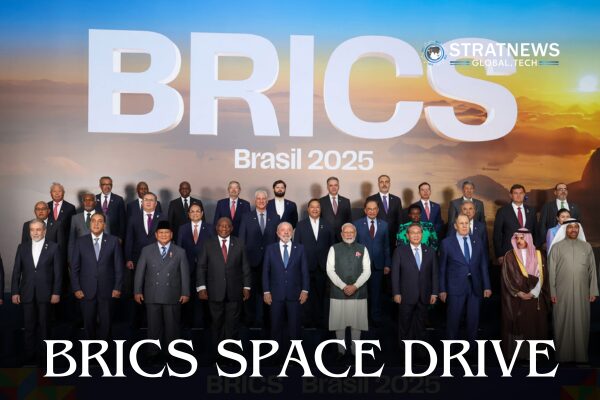As global power dynamics continue to evolve, BRICS and IBSA nations are working to expand their influence beyond traditional economic spheres, turning their attention to emerging frontiers like outer space, artificial intelligence, and digital governance. Discussions held on the margins of the 80th United Nations General Assembly on Friday revealed a shared intent among these countries to shape international rules and frameworks around technologies that are increasingly central to both development and security.
What emerged was a growing convergence between member states on the need to resist fragmentation of global governance and instead promote inclusive, rules-based approaches, especially in domains where technological dominance is becoming a key marker of geopolitical power.
India, which will assume the BRICS Chairship in 2026 and host the group’s XVIII Summit, is expected to play an important role in translating these broad goals into actionable frameworks.
Keeping Space Open: A Shared Concern
The BRICS ministers reiterated their support for maintaining outer space as a domain dedicated to peaceful purposes. They called for legal safeguards to prevent an arms race in space, endorsing the need for multilateral negotiations on a binding instrument. The updated Draft Treaty on the Prevention of the Placement of Weapons in Outer Space, submitted to the Conference on Disarmament, was cited as a step toward that objective.
Concerns are growing that outer space, once viewed primarily through the lens of exploration and communications, is becoming a contested arena with rising risks of conflict. BRICS countries pushed back against this trend, advocating instead for a cooperative approach rooted in transparency and confidence-building.
IBSA members — India, Brazil, and South Africa — echoed these concerns, specifically stressing space situational awareness and fair access to orbital slots and radio frequencies. Their focus reflects broader unease among developing nations that critical space-based resources and infrastructure are becoming increasingly concentrated in the hands of a few.
Technology Governance: A Strategic Agenda
Artificial intelligence featured prominently in the discussions, with BRICS ministers underlining the need for global governance frameworks that align with national priorities and local realities. There was a clear push to ensure that voices from the Global South are not excluded from decisions that will shape how AI is developed and used worldwide.
The group welcomed recent UN resolutions establishing mechanisms such as the International Scientific Panel on AI and the Global Dialogue on AI Governance. These moves are seen as early efforts to prevent unilateral dominance over AI standards, and to create room for developing countries to participate meaningfully in shaping its trajectory.
Beyond AI, BRICS reaffirmed its commitment to innovation-driven economic cooperation. The expansion of the BRICS Startup Forum, the Center for Industrial Competences, and other platforms are designed to support small enterprises and promote industrial transformation through joint initiatives. The message from the group is clear: emerging technologies must serve broad development goals, not just commercial or strategic advantage.
Cybersecurity and Digital Sovereignty
As the global digital environment becomes more fragmented and vulnerable to manipulation, BRICS leaders called for international cooperation on cybersecurity, underlining the role of the United Nations in setting universally agreed norms and legal principles. The threat of cybercrime, disinformation, and misuse of advanced technologies like deepfakes was a shared concern.
The group urged all states to ratify the newly adopted UN Convention against Cybercrime, and stressed the need for supply chain security and responsible behavior in the use of ICTs.
India’s Upcoming Role in 2026
With India preparing to lead BRICS in 2026, its diplomatic role is gaining further weight. The country has long advocated for democratizing global governance in both political and technological domains. The upcoming summit may offer a platform to consolidate proposals for legal and normative frameworks around AI, space, and cyber governance.
The expanded focus on space and technology cooperation is not just about modernization or innovation. For BRICS and IBSA, it represents a broader effort to redefine how global cooperation works, particularly at a time when existing institutions are under pressure and emerging technologies are redrawing the boundaries of influence.


